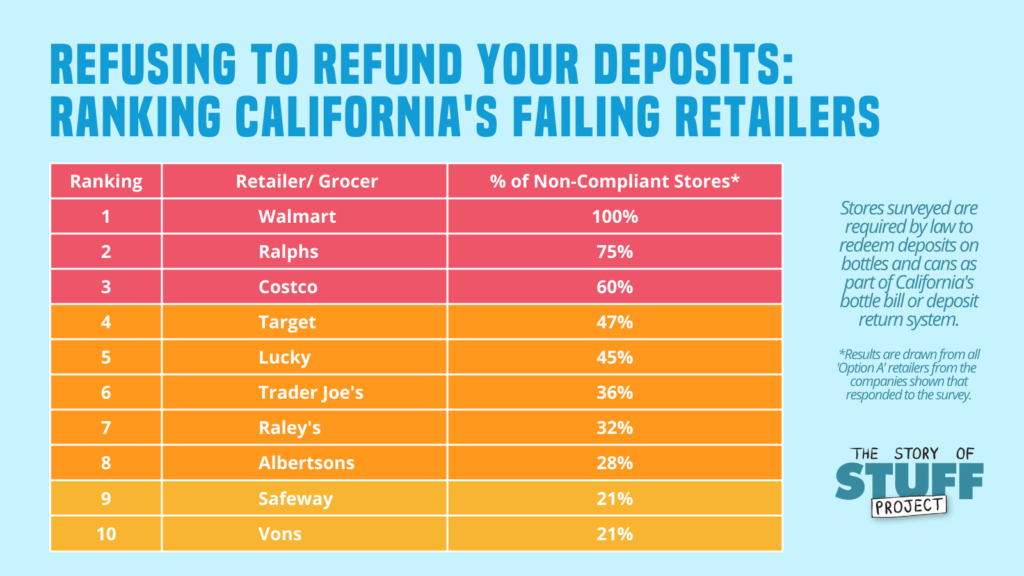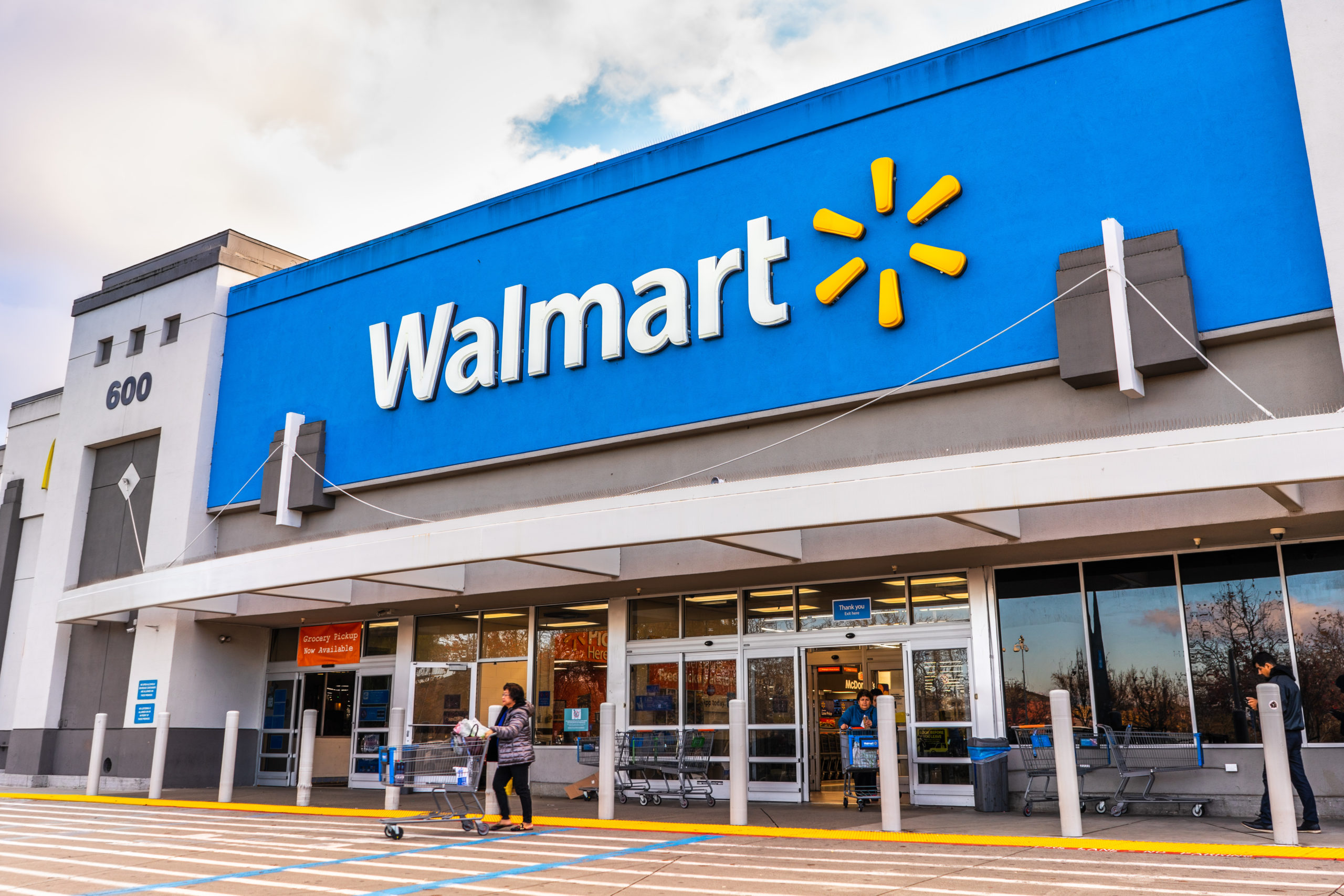The Bottle Bill’s Dismal Performance Highlighted as Legislature Considers Inclusion of Wine and Spirits Containers
CALIFORNIA – New research reveals that California’s largest retailers are flagrantly violating their legal responsibility to return deposits on bottles and cans to consumers under the state’s bottle bill.
A survey of 500 outlets of the state’s top ten grocers carried out by the non-profit Story of Stuff Project revealed that not a single Walmart that responded is returning deposits. Walmart, Ralphs and Costco are the three worst-performing retailers: 100% of Walmarts, 75% of Ralphs and 60% of Costcos are failing to redeem deposits, in spite of their legal obligation to do so.
The findings come as CalRecycle, which will be charged with enforcing the newly passed SB54, bargains with the state legislature over how to use hundreds of millions of dollars in unredeemed consumer deposits in the system operator’s coffers. The legislature is also currently considering a bill that would include wine and spirits bottles in the bottle bill for the first time.
Our researcher surveyed grocery outlets that are required to redeem deposits under California’s bottle bill, a critical line of defense against plastic pollution. While Walmart, Ralphs and Costco were the worst performing retailers, none of the ten largest retail chains were fully complying with the law. The full list of retailers found 167 non-compliant outlets from the following retail brands: Albertsons, Costco, Lucky, Raley’s, Ralphs, Safeway, Target, Trader Joe, Vons and Walmart.
Retailers that elect not to participate in the program are required to pay $100 per day to the CalRecycle, the program operator, in a so-called ‘Option B’ payment. By shirking their redemption responsibilities and failing to pay the ‘Option B’ fee, retailers are not only shortchanging California’s consumers, they are shorting CalRecycle over $6 million dollars annually, a number that would undoubtedly be far greater with a full investigation of non-compliant retailers by the agency. The results were submitted to CalRecycle’s complaints line for the agency to investigate.

Sam Pearse, Lead Campaigner at the Story of Stuff Project, who oversaw the survey commented: “The widespread refusal of major retailers like Walmart to take back empty containers is short-changing Californians and driving up plastic pollution in the state. This level of non-compliance should serve as a wake-up call to CalRecycle to step up its oversight role.
“The good news is that CalRecycle, the legislature and Governor Newsom can get the program back on track rapidly by pairing investments in convenient return infrastructure with stepped up enforcement against the large retailers across the state.”
Wider Crisis With The Bottle Bill
These findings come on top of a serious decline in California’s bottle bill revealed in a report earlier this year from the Story of Stuff Project including the following:
- Half of the state’s recycling centers have closed in the last decade.
- Over two-thirds of California’s 4000 “convenience zones”, which are designed to have at least one point of return, have nowhere to return bottles and cans.
- Many grocers that are legally required to redeem deposits are not doing so.
- As a result, last year the state lost over thirteen billion beverage containers per year to landfills, incinerators and the environment.
- CalRecycle, the state agency overseeing this program, has $600 million accumulated in its reserves, resulting from Californians’ inability to redeem nickels and dimes.
- At the time of writing, California looks poised to expand the program with the addition of wine and spirits to the program, in spite of the serious shortage of return points.
- Ten environmental organizations wrote to CalReycle in the Spring urging them to pair investment in the program with an increase in oversight and enforcement over retailers; the agency has yet to respond.
Contact
Contact: Sam Pearse, Campaign Manager Story of Stuff Project
[email protected] // 415-419-7499
About This Campaign
The California bottle bill, which adds a deposit on bottles and cans to incentivize recycling – is one of the state’s bedrock environmental laws, that’s kept billions of plastic bottles from polluting frontline communities and our environment. But with each passing year, it slumps deeper into crisis. The legislation was designed to ensure companies – like beverage manufacturers and retailers selling drinks – play their part in ensuring we reduce pollution. The reality however is that the system is being financed by Californians who oftentimes pay a deposit without any reasonable means of getting it back. The failing bottle bill is costing people and the planet. Visit our campaign page to learn more and support our efforts to get the bottle bill back on track.


